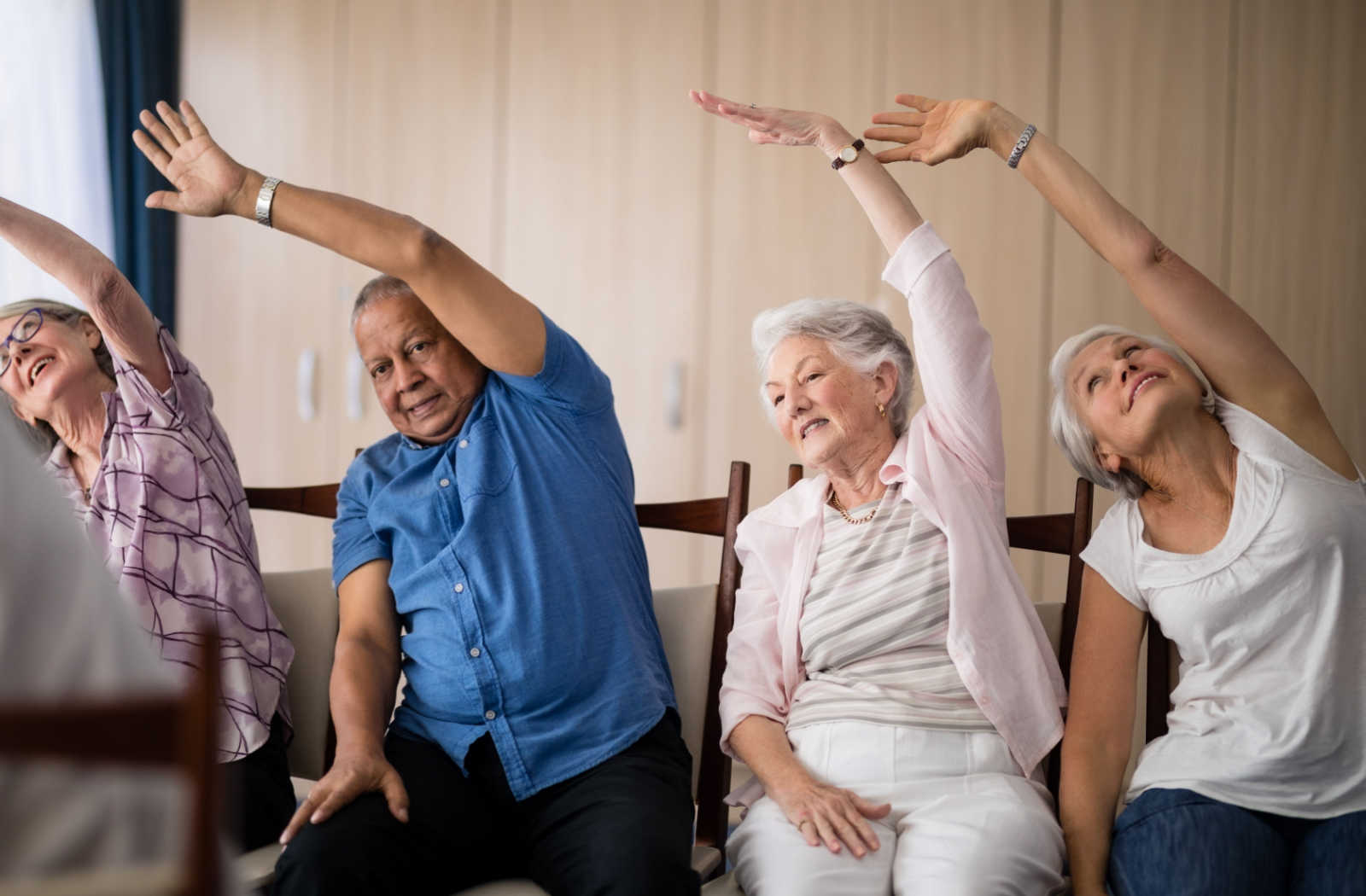Managing Chronic Inflammation in Seniors: How Rinvoq Treatment Works

Chronic inflammation underlies many debilitating conditions affecting seniors, such as rheumatoid arthritis (RA), psoriatic arthritis (PsA), and ulcerative colitis (UC). These conditions can significantly impair quality of life, causing joint pain, stiffness, and gastrointestinal distress. Rinvoq (upadacitinib), a selective Janus kinase (JAK) inhibitor, has emerged as a promising treatment for managing these inflammatory disorders, particularly in seniors who have not responded to other therapies like tumor necrosis factor (TNF) blockers. This article explores Rinvoq’s mechanism of action, its effectiveness in seniors, associated risks (including higher mortality in those over 50 with cardiovascular risk factors), and strategies for monitoring side effects such as infections and liver enzyme changes.
Understanding Chronic Inflammation in Seniors
As people age, chronic inflammation becomes more prevalent, driven by factors like immune system dysregulation and age-related tissue changes. Conditions like RA, PsA, and UC are autoimmune diseases where the immune system mistakenly attacks healthy tissues, leading to joint damage, skin lesions, or intestinal inflammation. Seniors, particularly those over 65, are at higher risk for complications from these conditions due to comorbidities like heart disease, diabetes, or weakened immune responses. Effective management of inflammation is crucial to improving mobility, reducing pain, and enhancing overall well-being in this population.

Rinvoq, developed by AbbVie, is a second-generation JAK inhibitor approved by the FDA for adults with moderate to severe RA, PsA, UC, and other inflammatory conditions when TNF blockers have failed or are not tolerated. Unlike Velsipity (etrasimod), another oral treatment for UC that targets sphingosine-1-phosphate (S1P) receptors to reduce lymphocyte migration, Rinvoq works by directly modulating intracellular inflammatory pathways, offering a distinct approach to managing chronic inflammation.
Read more: Meal Prepping for Elderly Living at Home: Easy, Healthy Recipes for the Week
Rinvoq’s Mechanism as a JAK Inhibitor
Rinvoq’s active ingredient, upadacitinib, is a selective JAK1 inhibitor that targets the Janus kinase-STAT (JAK-STAT) signaling pathway, a critical mediator of inflammation. JAK enzymes (JAK1, JAK2, JAK3, and TYK2) are intracellular proteins that transmit signals from cytokines—immune system molecules that drive inflammation. In conditions like RA, PsA, and UC, overactive JAK-STAT signaling leads to excessive production of pro-inflammatory cytokines, causing tissue damage and symptoms like joint swelling, skin plaques, or diarrhea.
Upadacitinib selectively inhibits JAK1 (with 74-fold and 58-fold selectivity over JAK2 and JAK3, respectively), reducing the inflammatory cascade while minimizing interference with other JAK-mediated processes like hematopoiesis or immune cell development. After oral administration, Rinvoq reaches peak plasma concentrations within 2–4 hours, providing rapid symptom relief. This targeted mechanism makes it effective for seniors with RA, PsA, or UC, particularly when combined with nonbiologic disease-modifying antirheumatic drugs (DMARDs) like methotrexate, though it is not recommended with other JAK inhibitors or biologic DMARDs due to increased risks.
Effectiveness in Seniors
Clinical trials have demonstrated Rinvoq’s efficacy across RA, PsA, and UC, with specific benefits for seniors. In RA, the SELECT-COMPARE Phase 3 trial (NCT02629159) involving 1,629 patients showed that 71% of those on 15 mg daily upadacitinib achieved ACR20 (20% improvement in RA symptoms) at 12 weeks, compared to 36% on placebo (p≤0.001). Additionally, 43–48% of patients achieved low disease activity or remission (DAS28-CRP <2.6), with sustained results for up to 3 years. For PsA, Phase 3 trials reported significant improvements in joint pain, stiffness, and fatigue, with 44.5% of patients experiencing symptom relief within 14 weeks. In UC, the U-ACCOMPLISH trial (NCT03653026) found that 45 mg daily for 8 weeks led to clinical remission in 26–33% of patients, with maintenance doses (15–30 mg daily) sustaining benefits for 52 weeks.
For seniors, Rinvoq’s efficacy is comparable to younger patients, with no significant differences in response rates for RA, PsA, or UC. However, older adults (65+) may experience slightly slower symptom resolution due to age-related changes in metabolism and immune function. The oral administration of Rinvoq (15 mg daily for RA and PsA, 45 mg induction followed by 15–30 mg maintenance for UC) is particularly convenient for seniors, who may struggle with injectable biologics. Unlike Velsipity, which is UC-specific and requires careful monitoring for cardiovascular effects, Rinvoq’s broader indications make it a versatile option for seniors with multiple inflammatory conditions.
Read more: Anti-Inflammatory Foods: A Natural Treatment for Bone on Bone Knee Pain
Risks and Safety Concerns in Seniors
While effective, Rinvoq carries significant risks, particularly for seniors, as highlighted by its FDA boxed warnings. These include:
- Serious Infections: As an immunosuppressant, Rinvoq increases the risk of infections, including upper respiratory tract infections (seen in >3% of UC patients), herpes zoster, and pneumonia. Seniors, with naturally weaker immune systems, are at higher risk for serious infections leading to hospitalization or death. A Phase 3 trial reported a higher infection rate with 30 mg versus 15 mg doses.
- Increased Mortality: A post-marketing study (ORAL Surveillance) of another JAK inhibitor (tofacitinib) in RA patients aged 50+ with at least one cardiovascular risk factor (e.g., smoking, hypertension) showed a higher rate of all-cause mortality, including sudden cardiovascular death, compared to TNF blockers. While Rinvoq-specific data are limited, the FDA applies this warning to all JAK inhibitors, advising caution in seniors with heart disease risk factors.

- Cardiovascular Events and Thrombosis: Rinvoq may increase the risk of major adverse cardiovascular events (MACE), such as heart attack or stroke, and thrombosis (blood clots). This risk is elevated in seniors with a history of cardiovascular disease or smoking.
- Malignancies: Lymphoma and skin cancers have been reported, with higher risks in older patients due to age-related immune decline.
- Liver Enzyme Changes: Elevated liver enzymes (ALT/AST) occur in >1% of patients, indicating potential liver damage. Seniors with mild to moderate liver impairment require dose adjustments (e.g., 30 mg induction for UC, reduced to 15 mg maintenance).
- Other Side Effects: Common side effects include nausea, fever, acne, headache, and anemia. Fatigue, reported in UC and PsA patients, may exacerbate age-related tiredness, while rare but serious risks like gastrointestinal perforation or retinal detachment require immediate attention.
Monitoring Side Effects in Seniors
Seniors using Rinvoq require careful monitoring to balance benefits and risks. Key strategies include:
-
Pre-Treatment Screening: Before starting Rinvoq, doctors should screen for infections (e.g., tuberculosis, hepatitis), cardiovascular risk factors, and cancer history. Seniors with severe liver or kidney disease should avoid Rinvoq, while those with mild to moderate impairment need adjusted doses.
-
Regular Blood Tests: Monitor liver enzymes (ALT/AST), blood cell counts (to detect anemia or neutropenia), and cholesterol levels every 4–8 weeks initially, then every 3–6 months. Significant changes may require dose reduction or discontinuation.
-
Infection Surveillance: Seniors should report symptoms like fever, cough, or fatigue promptly. Avoiding live vaccines (e.g., MMR, varicella) during treatment is critical, though non-live vaccines are generally safe.

-
Cardiovascular Monitoring: Regular blood pressure and lipid checks are essential, especially for seniors with heart disease risk factors. Any chest pain, shortness of breath, or sudden weakness warrants immediate medical attention.
-
Patient Education: Seniors and caregivers should be educated about symptoms of serious side effects, such as persistent nausea, abdominal pain, or vision changes (indicating possible retinal detachment). A Medication Guide, provided with Rinvoq, outlines these risks.
-
Consultation with Specialists: Rheumatologists, gastroenterologists, or cardiologists should collaborate to tailor treatment plans, especially for seniors on multiple medications like methotrexate, which may increase side effect risks.
Comparison with Velsipity
Velsipity, approved for UC, modulates S1P receptors to trap lymphocytes in lymph nodes, reducing intestinal inflammation. While effective (30–36% remission rates in UC trials), it is not indicated for RA or PsA, limiting its use in seniors with multiple conditions. Velsipity’s cardiovascular risks (e.g., bradycardia, hypertension) require ECG monitoring, which may be burdensome for seniors. Rinvoq’s broader indications and once-daily dosing offer greater flexibility, but its infection and mortality risks necessitate stricter oversight.
Conclusion
Rinvoq is a powerful tool for managing chronic inflammation in seniors with RA, PsA, or UC, offering significant symptom relief (43–48% remission in RA trials) through its selective JAK1 inhibition. However, its risks—particularly infections, mortality, and cardiovascular events in seniors over 50 with heart disease risk factors—require careful consideration. By implementing rigorous monitoring, including blood tests and infection surveillance, healthcare providers can optimize Rinvoq’s benefits while minimizing harm. Compared to Velsipity, Rinvoq’s versatility makes it a preferred choice for seniors with multiple inflammatory conditions, provided they receive personalized care and regular follow-ups. For seniors seeking to manage chronic inflammation, Rinvoq offers hope for improved quality of life when used judiciously under medical supervision.










